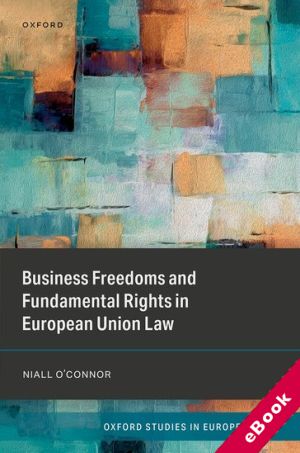
The device(s) you use to access the eBook content must be authorized with an Adobe ID before you download the product otherwise it will fail to register correctly.
For further information see https://www.wildy.com/ebook-formats
Once the order is confirmed an automated e-mail will be sent to you to allow you to download the eBook.
All eBooks are supplied firm sale and cannot be returned. If you believe there is a fault with your eBook then contact us on ebooks@wildy.com and we will help in resolving the issue. This does not affect your statutory rights.
Article 16 of the EU Charter of Fundamental Rights, recognising 'the freedom to conduct a business in accordance with Union law and national laws and practices', has been the subject of intense debate over the value of business freedoms within EU law. Problematically, the Court of Justice of the European Union (CJEU) relied on this provision in a series of highly deregulatory judgments, invoking Article 16 to undermine the effectiveness of employee-protective legislation.
Business Freedoms and Fundamental Rights in European Union Law assesses the value placed on the freedom to conduct a business as a fundamental right within the legal reasoning of the CJEU. Arguing that this freedom can only properly be understood in relation to its wider constitutional and social rights functions, it uses the employment law context as a case study, given the tensions that exist between the (economic) rights of employers and the (social) rights of employees. Examined holistically, the book demonstrates that granting fundamental rights status to business freedoms is not inherently deregulatory, with such freedoms also encapsulating 'social' rights, values, and interests. The freedom to conduct a business, therefore, emerges as a malleable fundamental rights concept, dependent on the underlying constitutional context, whether that be within national constitutional law, the EU Charter of Fundamental Rights, general principles of EU law, or in the arrangements governing the United Kingdom's departure from the EU.